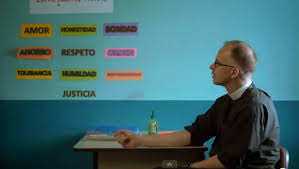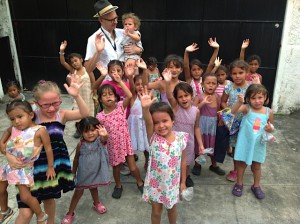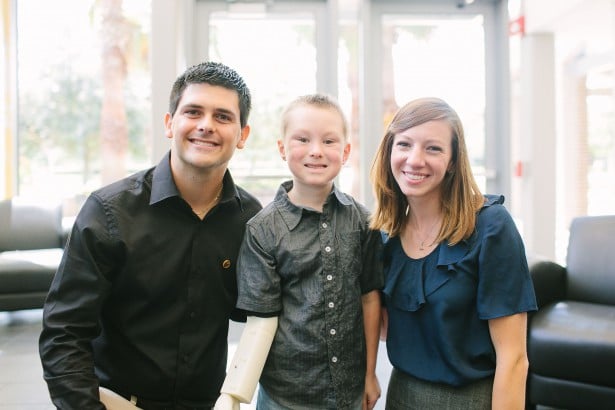I taught, ate, laughed, and wept with seventy-two orphaned girls for one year on the grounds of Our Little Roses, the only all-girl orphanage in Honduras, one of the poorest Spanish-speaking countries in the Western hemisphere and home to some 250,000 orphans. The Fulbright year I lived there, 24,000 orphans tried to cross the Rio Grande in search of their parents or in search of work or in search of both; the year I left the number more than doubled to 50,000.
I lived with the girls in San Pedro Sula, dubbed by most journalists as the murder capital of the world. Roughly three people a day are killed in San Pedro, most of it gang-related. Behind ten-foot walls and armed guards, I came, with the aid of a Fulbright grant in Creative Writing, to teach the girls how to write poems. The idea had come to me on a previous visit to the orphanage when one girl had said to me on my final night: “Don’t forget us.” She might have said that to everyone that passed through there. But with me, it stuck.

Spencer Reece, 2012-2013, Honduras, about to begin his 9th grade class where the students ended up dancing and memorizing Emily Dickinson to a salsa machine to understand meter
I had never made an anthology before, never taught English as a second language, never lived in poverty, never worried about drinking water, and, with only one brother, had never been in such close quarters with girls.
The first semester challenged me; I wanted to give up. The kids did not seem to want to learn poetry; they talked rapidly in Spanish behind my back. They were testing me. How many had come through there with good intentions only to abandon them once more?
Only after meeting with the founder of the home, one day, did things change. She said, “There is something you don’t know.” She told me the story of one of girls in my 11th grade class. A rock had been tied around her neck at the age of four and her stepmother had thrown her in a well, neighbors heard her screaming and she was brought to the orphanage. Here she was in my classroom fourteen years later.
Back I went to the classroom and thought, “Okay whatever she creates is fine, she is holding a pencil and that is a miracle.” She went on to write a majestic poem in our book.
The book is now complete and awaits a publisher. It is called Las Chavas: Twelve Love Poems from the Murder Capital of the World. My narration connects each chapter that is named after a girl. Each chapter ends with one of their poems: it is a rosary of souls. At the same time we were working on the book, we also were filming a documentary about the experience. James Franco has helped publicize the film and Dar Williams, the folk singer, is doing the score. Richard Blanco, Inaugural Poet, has coedited the book with me and Poetry magazine will publish all twelve poems in January 2015.
Advice to applicants: I encourage artists to apply for Fulbright grants in the Creative and Performing Arts. Although I was rejected the previous year, after being a finalist, I applied a second time and won. Although I am a priest, the church was not going to sponsor me as a writer to go down to Honduras and work in an orphanage and collect this anthology; Fulbright was the only avenue that supported this calling. The second year I applied, my aim and mission was more fully formed. If you are rejected at first, don’t lose heart, rejection can refine your aim and you can always apply again.



1 Comment
Spencer–
Amazing story! Do you have a website that I could look at? I’m on a Fulbright English Teaching Assistant grant here in South Africa and just created a creative writing club. I’m looking into getting sponsorships from local businesses to also print books with student work in them. I’ve only been here six weeks, though, so I’m just beginning my work. I’d love to read more about yours.
Best,
Samantha